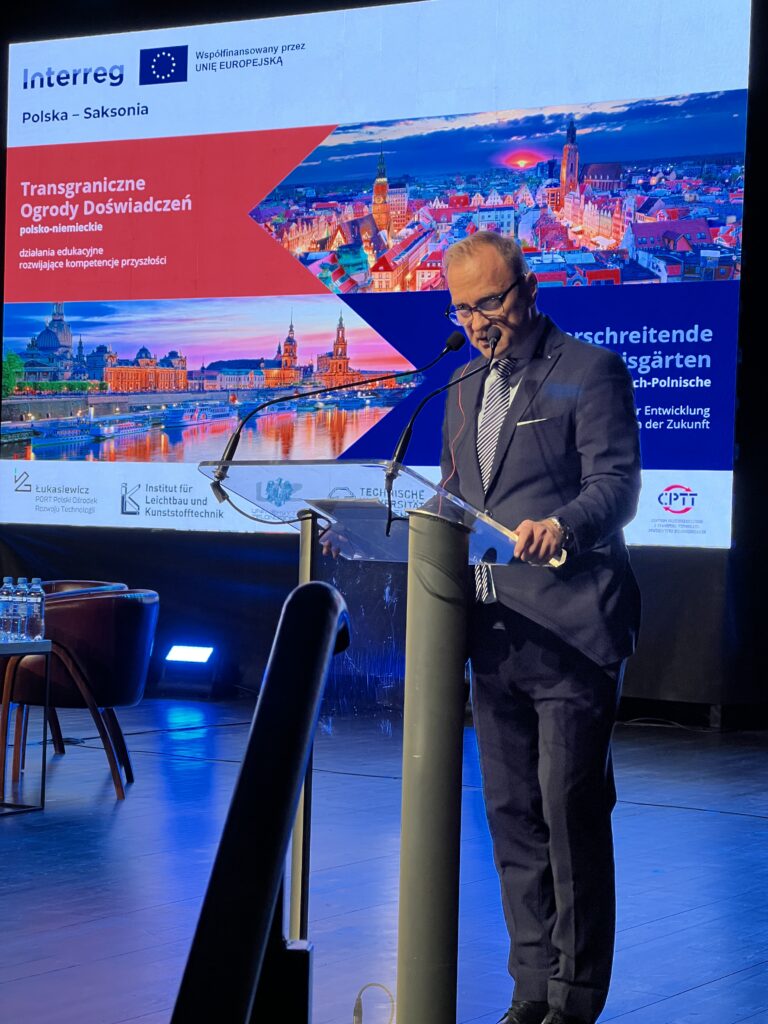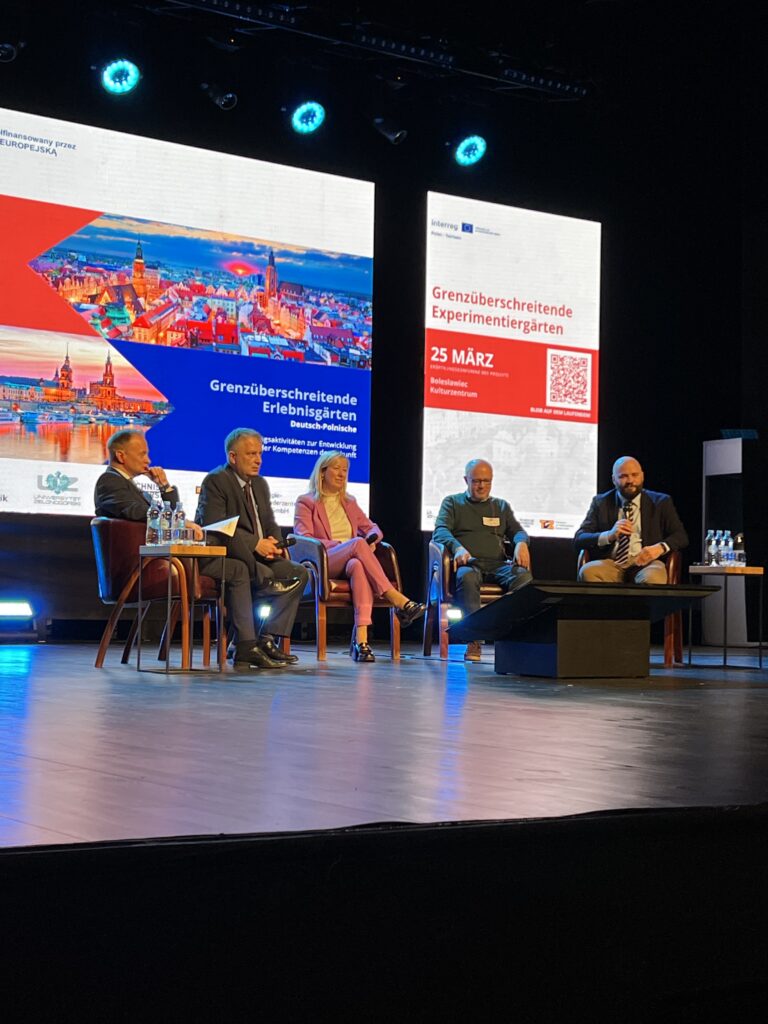Conference Launches the Cross-Border Gardens of Experience Project
Representatives of partner institutions, local governments, and scientific and educational organizations from the Polish – Saxon border region, along with all those interested in the planned cross-border initiatives, gathered on March 25 at the Bolesławiec Cultural Center to inaugurate the project.

The project, co-funded by the EU’s Interreg Poland – Saxony program, aims to strengthen regional cooperation in education and science, promote the STEM/MINT teaching methodology, and foster future-ready competencies.
The meeting in Bolesławiec, particularly the panel discussion, highlighted that residents on both sides of the border face similar challenges: the outflow of young people from smaller towns, declining population density in border areas, and a shortage of specialists, including teachers, in local communities.
Paweł Kurant, Deputy Director of Łukasiewicz – PORT, emphasized that Cross-Border Gardens of Experience is a pilot initiative demonstrating that the goals of promoting science are shared on both sides of the border. The project aims to spark further activities that will enhance young people’s interest in science. The Department of Social Responsibility of Science at Łukasiewicz – PORT, led by Marek Staniewicz (also the project coordinator), is already developing concepts for engaging workshops and training sessions for students and teachers.
During the discussion, Professor Sophie Kail of Zittau/Görlitz University of Applied Sciences clearly articulated the essence of science popularization: –Young people should be able to imagine themselves studying science, to see that it’s possible.
Mobile exhibitions, school workshops, and local science centers, such as SOWA in Bolesławiec described by Elżbieta Ostańska, are intended to spark curiosity, help young people visualize the work of scientists, and inspire them to pursue such career paths.

The STEM/MINT approach promoted by the project is not meant to replace traditional school education but to complement it – much like research conducted in scientific institutes, which often has practical and applied dimensions, complements academic study at universities. All participating universities stressed that the technological solutions they are developing are intended for everyday use, highlighting the need for ongoing collaboration between academic, educational, and business communities.
Bolesławiec District Governor Tomasz Gabrysiak noted that it is the responsibility of local governments to ensure that educational offerings for young people align with current trends and labor market demands and to create conditions in smaller towns that allow graduates to build fulfilling lives there.
German partners from eastern Saxony, just like the communities on the Polish side of the border, recognize that in addition to high-quality educational programs, the successful implementation of regional development strategies depends on having young people who are aware of the opportunities that science and education can offer.

